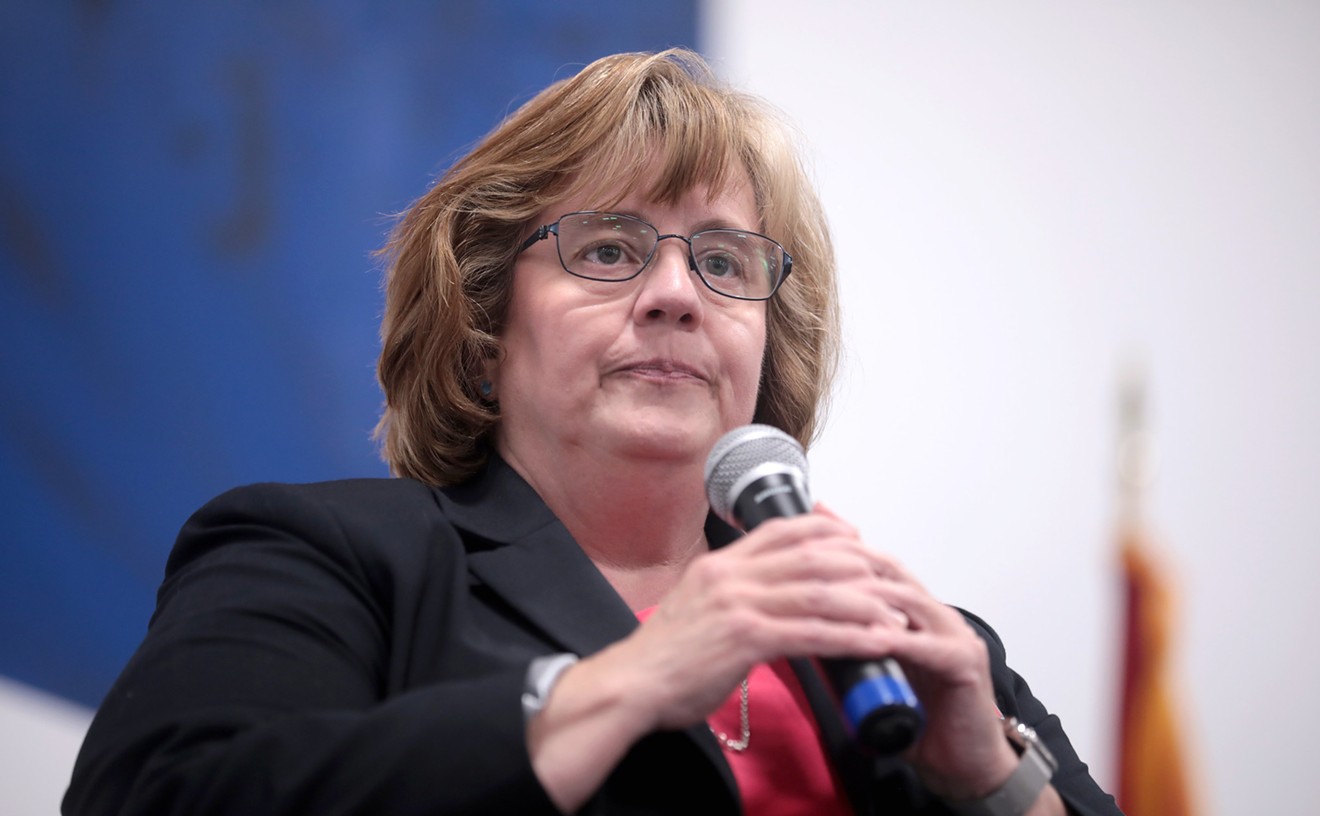A new bill from a Republican legislator would shorten the list of acceptable forms of voter identification at the polls.
Currently, non-photographic forms of identification like bank and property tax statements, utility bills, vehicle registration, and insurance cards all work at the polls, so long as a voter brings two separate documents.
But State Representative and noted fursona-adopter Kelly Townsend wants to do away with those options.
On top of restricting non-photo IDs, the voting bill pre-filed by Townsend on Tuesday would also explicitly ban university and high school students from using their school-issued identification cards at the polls.
The school ID provision appears to be a thinly veiled political dig at Secretary of State Katie Hobbs, a Democrat elected to the statewide position in 2018.
Voters currently are prohibited from using their student IDs to get a ballot. That could change if Arizona Governor Doug Ducey approves new election procedures proposed by Hobbs, which would would allow public school IDs at the polls if, and only if, the card contains a voter's address.
That's a big if. Most public school identification cards, including those issued by Arizona State University (ASU), do not contain addresses.
Townsend, who represents parts of the east Valley, did not respond to a request for comment.
State Representative Athena Salman called Townsend's bill an "attack on young people." Salman, who represents a district that includes ASU's Tempe campus, noted that high school and college students often vote against Republican values.
"It's telling of the anxiety by some of my colleagues on the other side of the aisle. We'll see more of that this presidential year," said Salman, who serves as a co-whip for Democratic legislators.
Salman co-sponsored a resolution in 2017, which never made it out of committee, supporting lowering the voting age to 16.
Morgan Dick, the deputy director of the Arizona Advocacy Network, a voting rights group, called Townsend's bill a "straight pre-emption" of Hobbs' proposed election procedures. "I can't think of a single university or community college that prints addresses on IDs," Dick said.
Dick said the Arizona Advocacy Network generally supports policies that make it easier for young people to vote. High school and college-age students, who lean Democratic, recently have voted in greater numbers than they did before. During the 2018 midterm elections, 18-to-29-year-old Arizonans voted at three times the rate as they did in 2014.
Dick said the restrictions on non-photo identification such as utility bills would likely have a greater impact on elections than Townsend's proposal on student IDs.
"A significant portion of Arizona voters may have left their driver's license at home that day, and it's as simple as running out to the car and grabbing a bank statement," Dick said. "We're talking about harming Arizonan's poorest populations, folks who can't afford to get a new ID to update their current address."
As Townsend serves as chair of the House Elections Committee, expect her bill to get a hearing during the legislative session that begins in January. But don't expect it to pass.
Because the bill would affect election restrictions approved by voters in 2004, Arizona's Voter Protection Act requires three-fourths of lawmakers to vote yes to pass Townsend's legislation, rather than a simple majority.
Democrats, who control 29 of 60 seats in the House, generally oppose legislation that restricts voter access and are unlikely to vote for Townsend's bill.
"I can firmly say this bill will get no Democratic support," Salman said.
[
{
"name": "Air - MediumRectangle - Inline Content - Mobile Display Size",
"component": "18478561",
"insertPoint": "2",
"requiredCountToDisplay": "2"
},{
"name": "Editor Picks",
"component": "16759093",
"insertPoint": "4",
"requiredCountToDisplay": "1"
},{
"name": "Inline Links",
"component": "17980324",
"insertPoint": "8th",
"startingPoint": 8,
"requiredCountToDisplay": "7",
"maxInsertions": 25
},{
"name": "Air - MediumRectangle - Combo - Inline Content",
"component": "16759092",
"insertPoint": "8th",
"startingPoint": 8,
"requiredCountToDisplay": "7",
"maxInsertions": 25
},{
"name": "Inline Links",
"component": "17980324",
"insertPoint": "8th",
"startingPoint": 12,
"requiredCountToDisplay": "11",
"maxInsertions": 24
},{
"name": "Air - Leaderboard Tower - Combo - Inline Content",
"component": "16759094",
"insertPoint": "8th",
"startingPoint": 12,
"requiredCountToDisplay": "11",
"maxInsertions": 24
}
]











